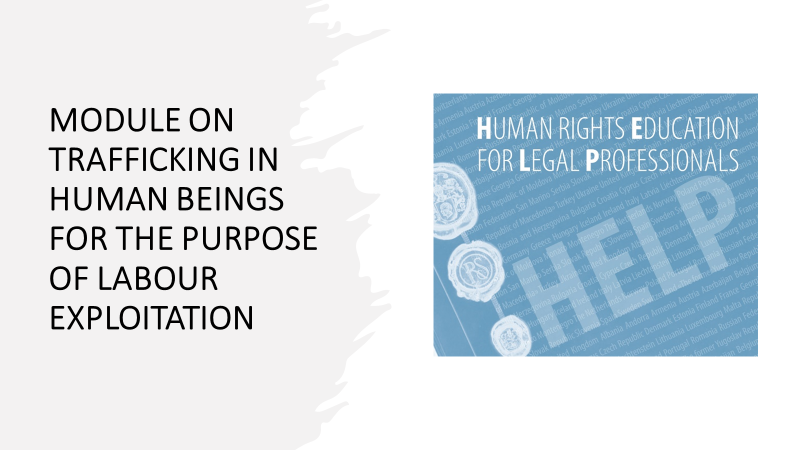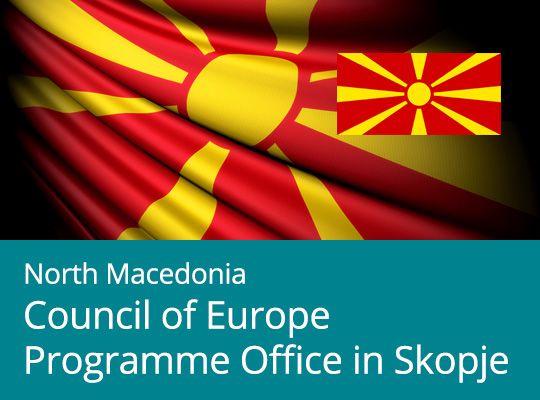Trafficking for the purpose of labour exploitation is a rising concern in Europe and globally. Although it accounts for more than a third of the total of human trafficking cases detected globally, it is often an invisible and complex crime that causes serious violations of human rights and long-term suffering to the victims.
On 4 November, a webinar to introduce the new HELP (Human Rights Education for Legal Professionals) online training module on Trafficking in Human Beings for the Purpose of Labour Exploitation was organised by the anti-trafficking Actions in Bosnia and Herzegovina, North Macedonia and Serbia, implemented in the framework of the joint European Union and Council of Europe programme “Horizontal Facility for the Western Balkans and Turkey 2019-2022”.
The webinar brought together more than 130 participants - labour inspectors, judges, prosecutors, lawyers, police officers, representatives of international organisations, national ministries dealing with human rights and human trafficking issues as well as civil society organisations working with victims.
Overviews of the situation in the three countries in respect of trafficking for the purpose of labour exploitation and of the efforts undertaken by national stakeholders to identify cases and to protect the victims were provided respectively by Sanin PRAŠOVIĆ, Expert advisor at the Anti-trafficking Department of the Ministry of Security of Bosnia and Herzegovina, Magdalena NESTOROVSKA, National Coordinator for Combating Trafficking in Human Beings and Illegal Migration at the Ministry of Interior of North Macedonia and Mitar ĐURAŠKOVIĆ, National Coordinator for Combating Trafficking in Human Beings at the Ministry of the Interior of Serbia.
Petya NESTOROVA, Executive Secretary of the Council of Europe Convention on Action against Trafficking in Human Beings highlighted the importance of the topic which is amongst the highest long-term priorities of the Council of Europe and recalled the recently published key resources of the Group of Experts on Action against Trafficking in Human Beings (GRETA) – the Compendium of good practices in addressing human trafficking for the purpose of labour exploitation as well as the Guidance Note on preventing and combating human trafficking for the purpose of labour exploitation.
The authors of the HELP training module, Mike Dottridge and Klara Skrivankova, introduced the module’s learning objectives and gave detailed presentation of its content. They addressed the complexity of the continuum of labour exploitation (from minor labour rights violations under labour law to major human rights violations under criminal law) and stressed the importance of the use of indicators and for systematic coordination between different agencies in the identification of trafficking cases. Other concepts such the deception and the abuse of power, or of position of vulnerability were explained.

The approach of the European Court of Human Rights in respect of human trafficking and forced labour was presented by Krešimir KAMBER, Lawyer at the Registry of the Court, through an overview of a selected case-law of the Court. He clarified the State obligations under the European Convention on Human Rights to ensure effective protection from human trafficking, not to punish victims for illegal acts which they committed and to investigate a credible suspicion of human trafficking.
Valentina Boz, Project Coordinator of the HELP Programme in the Western Balkans, explained the overall concept of the HELP course and the functioning of the HELP platform as an interactive online course.
The training module is an important tool for developing the national capacity to identify and prosecute in cases of labour exploitation, as well as to provide adequate support and assistance to victims. It is proposed as a part of the HELP course on Combating Trafficking in Human Beings and as a stand-alone course, since it addresses the issues surrounding the trafficking for the purpose of labour exploitation in a comprehensive manner.




